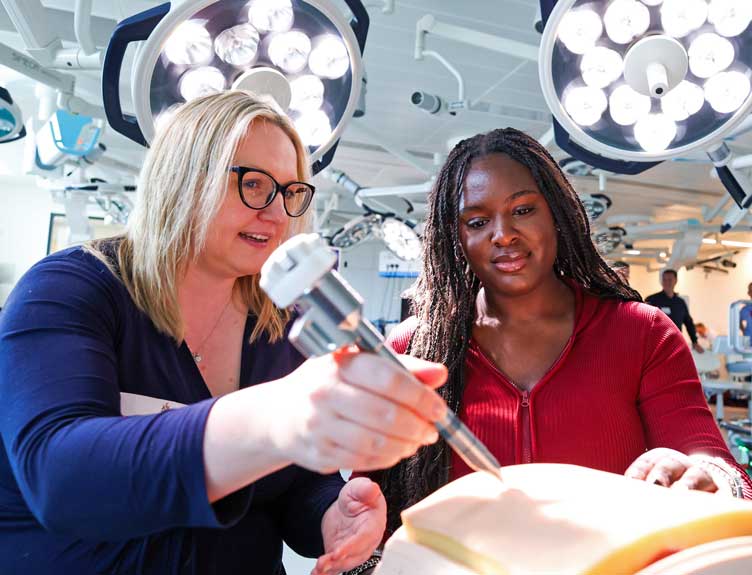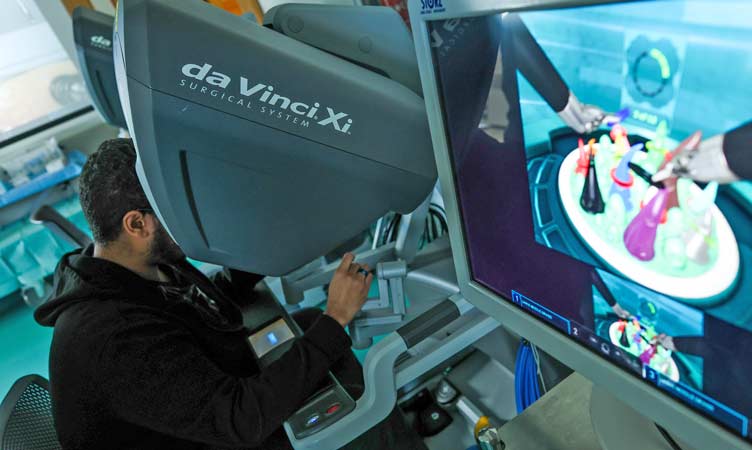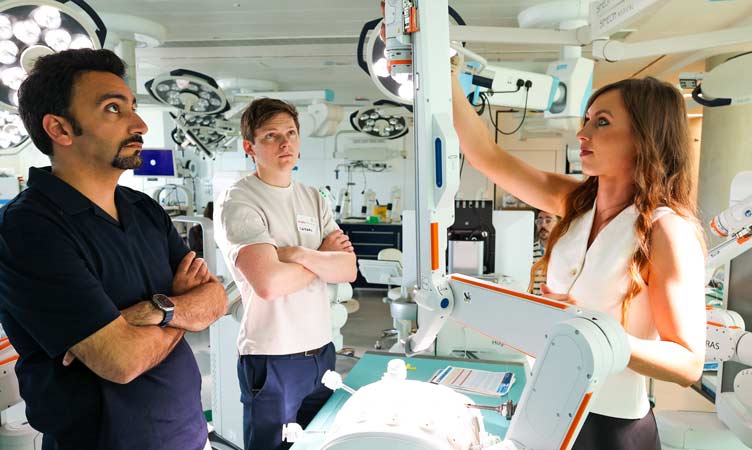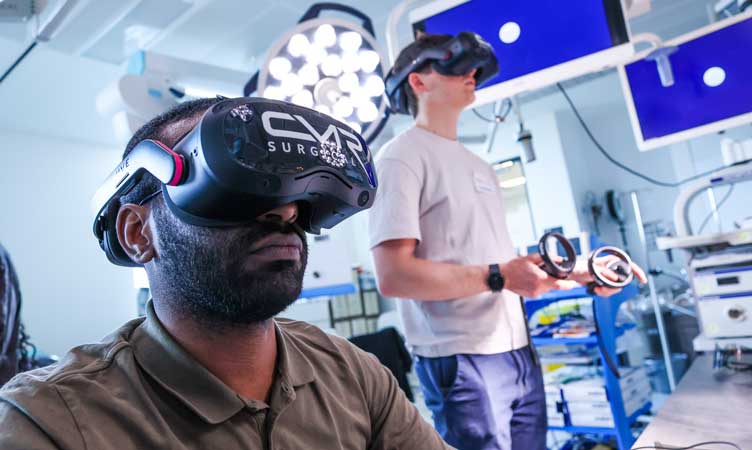RCSI hosts multi-platform RoboStart and Robotic Assistants workshops

Multi-platform RoboStart and Robotic Assistants workshops have been held at RCSI for the first time, giving surgical trainees across different specialities and surgical assistants the opportunity to enhance their skills in these emerging technologies.
Taking place from 26 September to 30 September at the National Surgical and Clinical Skills Centre, the training was attended by robotic surgery assistants and surgical trainees across different specialties, such as urology, cardiothoracic surgery and general surgery.
This year’s robotic surgery workshops provided participants access to three different robotic surgery consoles: The Da Vinci Robot, The Hugo Robot, and The Versius Robot. This novel multi-platform robotic surgery experience is the first of its kind in Ireland and gave trainees the opportunity to practice on a diverse range of robotic surgery consoles in a safe environment.
The purpose of the workshops is to enhance the technical skills and competencies of surgical trainees and robotic surgery assistants, such as physician associates and nursing bedside assistants, to allow for the safe use of robotic surgery consoles for the benefit of patient care.

The robotic journey
This series of workshops were co-ordinated by Professor Barry McGuire, Dean of Postgraduate Surgical Education and Academic Development, RCSI with support from vendors such as Intuitive, Medtronic and CMR Surgical. The International Medical Robotics Academy (IMRA) supported the development of the robotic surgery curriculum for the workshops.
Professor Barry McGuire, Dean of Postgraduate Surgical Education and Academic Development, RCSI, said: “The multi-platform experience has been a great success, with extremely positive feedback from trainees and faculty. My sincere thanks to all those who made it happen. Repetitive simulation exercises on hydrogel models and exposure to different robotic platforms are an important early start on the robotic journey. We hope to expand this next year, and ultimately it will form part of a formal curriculum pathway.”
Professor Kevin Barry, Director of National Surgical Training Programme, RCSI, said: “I welcome the formal introduction of structured multispecialty training courses in robotic surgery here at RCSI. This is a very significant development for our trainees and will afford the opportunity to gain practical hands on experience with various robotic surgical platforms.”

A commitment to training
These classes are part of a step-wise approach to robotic surgical training and demonstrate our commitment and focus in a training context. We will also lead out on the formal introduction of a curriculum of robotic surgical training for the various surgical specialties in the coming months. Our ambition is to be at the forefront of robotic surgical training in the years ahead, recognising the increasing penetration of this technology.”
Dr Fintan Ryan. ST2 Urology, said: “The RoboAssist course was an incredibly valuable learning experience. I gained a deeper understanding of how various robotic systems are configured and operate, which helped boost my confidence in assisting with these technologies. I would highly recommend this course to any surgeon looking to expand their involvement in robotic surgery.”
These workshops are the foundation for the development of a wider robotic surgery curriculum, set by national leads in robotic surgery across different specialities in Ireland.
Learn more about RCSI's Foundations of Robotic Surgery course here.




